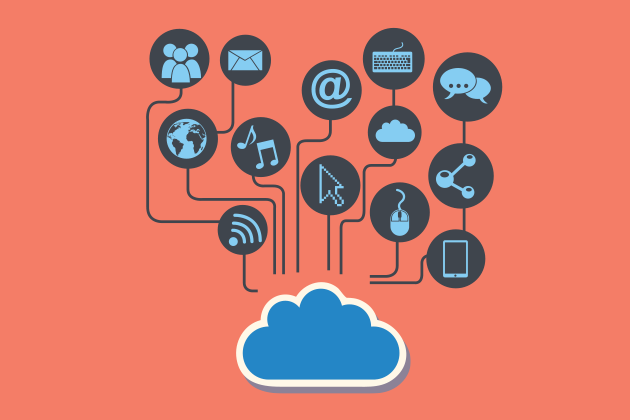A cloud application, or cloud app, is a software program that functions just like a native application. It runs in the cloud and it can interact via web browsers and Application Programming Interfaces (APIs). Cloud applications rely on servers that are typically located in a remote data center managed by a third-party cloud services infrastructure provider.
The services Cloud Computing Applications deliver may include email, file storage and sharing, data collection, order entry, inventory management, customer relationship management (CRM), word processing, and financial accounting features.
How do Cloud Computing Applications Function?
The cloud computing system can be divided into two sections namely, the front end and the back end. These two are connected via a network, which is usually the Internet. The front end represents the side of the computer user or client, while the back end is 'the cloud' section of the system.
The front end is made up of the client's computer or computer network, as well as the application necessary to access the cloud computing system. Meanwhile, the back end of the cloud technology system consists of various computers, servers, and data storage systems.

Cloud applications are very responsive and they don't need to permanently reside on a local device. Also, they don't always consume massive storage space on a computer or communications device. Overall, cloud apps offer the interactive aspect of a desktop application, while having the portability of a web application.
Cloud apps vs. Web apps
While both cloud and web applications utilize data residing on remote storage to function, these programs also differ from one another. One major difference between cloud and web applications is their architecture. A web application needs to have a continuous internet connection to work. That said, if the remote server is unavailable, the web application may not function.
On the other hand, a cloud-based application can perform its tasks on a local device without using the internet. So even if the remote server becomes unavailable, the cloud application on the local user device can still operate. However, an internet connection is required to be able to download or upload data.
The difference between cloud and web applications is better understood by having these productivity tools (email and word processing) as examples.
Gmail is a web-based application that requires a browser and internet connection to work. Opening, writing, and organizing messages could only be possible through the browser. As such, all processing logic happens on the servers of the service provider, and through the internet's HTTP or HTTPS protocols.
An example of a cloud app is the word-processing app, Word for Office 365. Once installed, the application can perform tasks even without an internet connection. All documents composed in Word for Office 365 will be automatically stored in the Office 365 cloud server.
Benefits of Cloud Computing Applications
1: Efficiency
By using Cloud Computing Applications, enterprises are provided with a fast time to market. This agility helps improve business processes without having to worry about the underlying costs of infrastructure and maintenance.
2: Mobility
Cloud Computing Applications enable mobile access to corporate data through smartphones, tablets, and laptops. This is one way to ensure that no one is ever left out of the loop. Employees with busy schedules, or for those who live far away from the office, can use cloud apps to be updated with clients and co-workers. Also, freelance or remote employees are able to ensure better work-life balance by easily accessing information through the cloud.
3: Reduced costs
Accessing company data via Cloud Computing Applications can save time and money. As most cloud computing services are using the pay-as-you-go model, you don't have to worry about paying for features that you don't need or want. Cloud-based applications are cheaper to operate and maintain than other on-premises installations.
4: Security
Cloud computing architecture reduces the risk of having your data stolen. Since the data are stored in the cloud, and not on the hardware, organizations can access their data and restrict access where needed. Also, everything is always backed up on the server, so even if you experience hardware failures, no data will be lost.
Swift Systems
Swift Systems offer private cloud services to regional and Maryland businesses. We deploy advanced security features and provide you with excellent IT services. To know more about our offerings and to get a free quotation, get in touch with one of our technical experts today.
